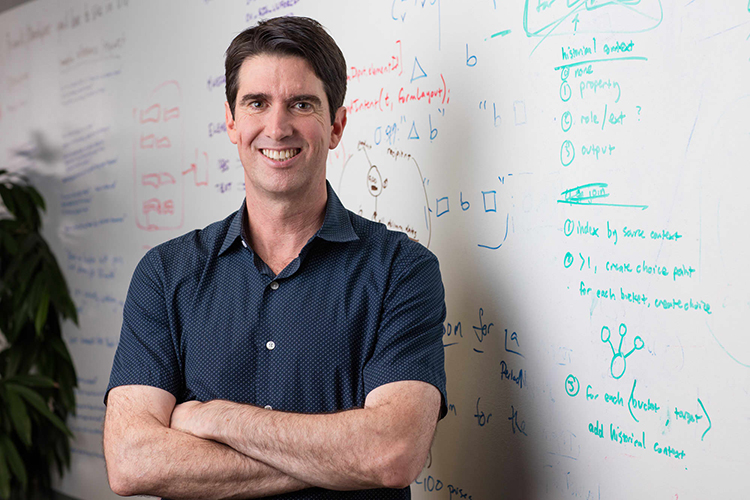Berkeley Talks: Siri creator Adam Cheyer shares secrets of entrepreneurship
In this Berkeley Talks episode, Cheyer tells the story of Siri and explains how to take an entrepreneurial idea from conception to impact
July 14, 2023
Follow Berkeley Talks, a Berkeley News podcast that features lectures and conversations at UC Berkeley. See all Berkeley Talks.

Adam Cheyer is the creator of Siri, Change.org, Viv Labs, Sentient and Bixby. (Photo courtesy of the Sutardja Center for Entrepreneurship and Technology)
In episode 175 of Berkeley Talks, Siri creator Adam Cheyer talks about the long road to launching the virtual assistant, how to take an entrepreneurial idea from conception to impact and why he doesn’t see anything as a failure.
“An entrepreneur and a magician are exactly the same,” began Adam Cheyer, who also founded the startups Change.org, Viv Labs, Sentient and Bixby, at a UC Berkeley event in 2021. “An entrepreneur needs to imagine an impossible future. Think about Siri: 20 years ago, if I told you that you could pull a device out of your pocket, it would know who you are and where you are, and you could just talk to it using your words and it would not only talk back to you, but do things for you, book that reservation, buy a movie ticket, you would’ve thought that were magic.
“An entrepreneur has to imagine an impossible future that’s desirable, that doesn’t exist. … So, you have to reach far as an entrepreneur, dream big, dream magical. But you have to be very clear (and answer), ‘Why would we want such a thing?'”
During the Q&A portion of the event, Berkeley student Peter Flo Grinde-Hollevik asked Cheyer to describe one of his biggest failures and what he learned from it.
“First of all, I’m an eternal optimist, so I keep trying, and I never go back and second-guess a major decision in my life,” responded Cheyer. “I make the decision, move on, and I never see it as a failure. I see it as a learning moment. But I don’t define it, my decisions, my path, as a failure. Sometimes I’ll try something, and it doesn’t work and my response is, “Huh, that’s interesting. I wonder why it didn’t work.” And I think about that, and I learn from it, but I never consider it a failure. So, that’s part of my answer — I am constantly striving for the goal, and if I haven’t succeeded yet, I don’t fail unless I give up. So, for me, failure is giving up and I haven’t given up yet.”
This Feb. 9, 2021, talk was part of UC Berkeley’s Sutardja Center for Entrepreneurship and Technology’s 2021 Newton Lecture Series. Read more about Cheyer’s talk on the center’s website.
Listen to other episodes of Berkeley Talks: